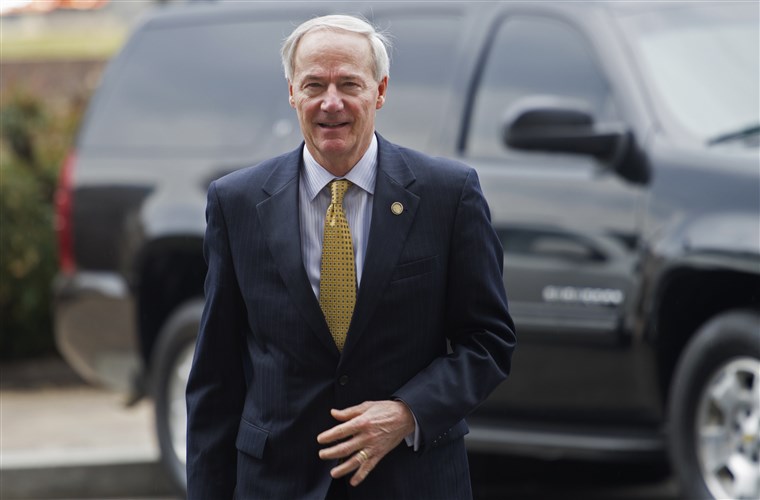ARKANSAS – Gov. Asa Hutchinson on Tuesday set up a 14-member American Rescue Plan Steering Committee to oversee the spending of $1.57 billion of the about $5 billion in federal pandemic aid coming to Arkansas.
The $1.57 billion is the amount going directly to state government; the rest will go to educational institutions, cities, counties and the state Department of Human Services.
About $285 million in funding will flow through the state Department of Finance and Administration to Arkansas communities with less than 50,000 residents, department spokesman Scott Hardin told Arkansas Business by email on Wednesday. The money allocated to each community is based on a formula that was established in guidance from the U.S. Department of the Treasury, he said.
DHS will use its portion of the money for rental assistance programs and other “humanitarian” needs, the governor said on Tuesday.
The committee will comprise eight state cabinet members or their designees and three members each from the state Senate and House.
Larry Walther, secretary of the Department of Finance and Administration, will chair the committee. Members include Sens. Keith Ingram, D-West Memphis; Bill Sample, R-Hot Springs; and Ronald Caldwell, R-Wynne; and Reps. Kenneth Ferguson, D-Pine Bluff; Jeff Wardlaw, R-Hermitage; and Frances Cavenaugh, R-Walnut Ridge.
The money comes from a $350 billion fund for states and local governments in the $1.9 trillion American Rescue Plan, which President Biden signed in March. That slice of the relief package aims to replenish lost revenue and mitigate economic harm from the pandemic, and can be used to cover costs incurred by the end of 2024.
While some states are getting all their money up front, Arkansas is getting its share in two installments — the first half soon and the rest by the end of next year — because its economy recovered more quickly than in other states, the governor said.
Hutchinson said the act gives states broad latitude for spending the money.
“There’s a lot of flexibility,” he said. “It’s allowed to be used for capital investments as well as investments in infrastructure, with the Health Department to guard against and be prepared for a future pandemic. This is such a unique time that it’s important we proceed through this in a planned fashion — that we proceed through it in a coordinated way.”
Hutchinson said Arkansas priorities should include broadband deployment, cybersecurity protections and other capital investments that do not lead to long-term spending or debt.
Hutchinson said the state will need to coordinate with its county and city counterparts, different agencies and education institutions on how to spend the money. He said Arkansas will use private sector advisory committees and working groups as needed to develop spending plans.
“We have to be methodical about this and not rushed,” he said. “In other words, it must be planned.”
Hutchinson said the CARES Act Steering Committee, formed last year to oversee the federal government’s previous pandemic aid, would remain a separate entity and continue its work apart from the new committee.
Opting Out
Also Tuesday, the governor responded to questions about his decision, announced Friday, to opt out of federal pandemic unemployment benefits in June.
“I believe you will see an increased number of Arkansans that will be moving into the workforce because our employers are providing incentives and they are providing a good wage rate, but it’s sort of hard to compete with the package that the Biden administration has made available from not just unemployment but extra pay to stay at home when all the other assistance packages are there,” the governor said.
Hutchinson said the state can help job seekers find a job and with child care.
The governor said he looked at how Montana is offering incentives for people to return to work but that the timing isn’t right for Arkansas to do the same. Hutchinson said that would be unfair to the tens of thousands of Arkansans who returned to the workforce without incentives.






